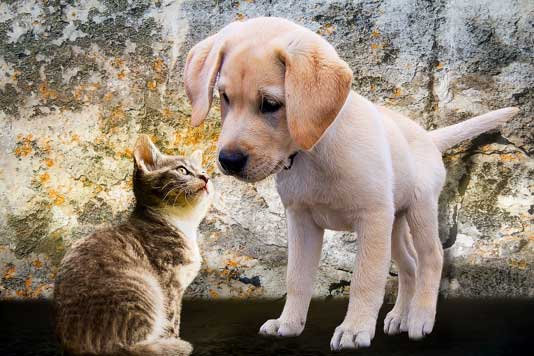Dangers of Antifreeze
What is antifreeze?
You’re likely familiar with antifreeze as anyone with a car has either used it or had it used. It’s an engine coolant that is added to your car’s radiator water to keep it from boiling over on hotter days and freezing on very cold days. But what you may not know is that antifreeze’s main component is a chemical called ethylene glycol. Ethylene glycol is one of the most common causes of intoxication and acute tubular necrosis (death of all cells in an organ or tissue because of disease, injury, or failure of blood flow). Ethylene glycol is lethal to pets, and even more dangerous because of its sweet odor and taste that attracts them. Though the need for antifreeze increases when the temperature outside drops, it is likely that you will always have some on hand in your garage, making it important that you’re educated year-round on how to handle it
What happens if my pet ingests some?
If you see your pet ingest antifreeze, lick at a spot where there was antifreeze, or think there is a possibility – no matter how small – that your pet may have ingested any, bring them in immediately. The window of time between ingestion and irreparable damage is very short. By the time symptoms appear, it is generally too late and can cause sudden and acute kidney failure, or even death. Because the ethylene glycol has a sweet taste, your pet is more likely to seek it out if there does happen to be a spill. Only a very small amount needs to be consumed to be lethal. Three to four teaspoons for dogs, only one to two teaspoons for cats. While all animals are susceptible to the dangers of antifreeze, dogs and cats are most commonly affected.
The key to treatment is immediate action. Bring them in as soon as you possibly can. Until they get our professional treatment, the goal is to eliminate the chemical in their bodies. Try to get them to throw up. The container of antifreeze should have poisoning treatment directions. Follow them, but don’t let that take the place of bringing them in for emergency veterinary treatment, even if they are able to vomit. Because the window of time for successful treatment is so short, it’s crucial to bring them in the very moment they ingest any.
What can I do?
Having antifreeze in your garage is fairly inevitable. If you have a car, you probably have antifreeze. To keep your pet as safe as possible, there are a few different steps you can take. Buy only what you need, and consider donating any extra you may have. It never expires, so look into local high school auto shops that take donations or hand it off to a friend who needs some. Contact your local radiator shop and ask if they accept antifreeze for recycling or disposal. There are Household Hazardous Waste (HHW) collection facilities – to find one local to you, call 1-800-CLEANUP or visit www.1800cleanup.org. There you will find more in-depth information on what to do and what not to do. If you dispose of the antifreeze at home, it’s important not to pour it down the drain, down the sewer, in the regular trash, or on the ground. Store used antifreeze in a sealed and labeled container away from heat, children, pets, and wildlife. Carefully follow instructions on the container to prevent any possible accident.
Buy antifreeze that contains propylene glycol instead of ethylene glycol. The US Food and Drug Administration generally regards it as less lethal if ingested, but it is still extremely dangerous to your pet’s health.
Any spills need to be cleaned up immediately, and the spot covered with an absorbent substance like kitty litter, sawdust, or newspaper strips to act as a sort of catchall and mask the sweet scent from the ethylene glycol to discourage your pets from licking the area where the spill happened.
If you have any questions about how to keep your pet safe from antifreeze, or any other dangerous chemical, feel free to give us a call and we will help you any way we can.



